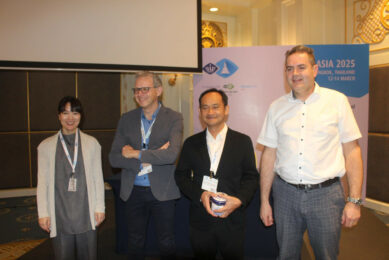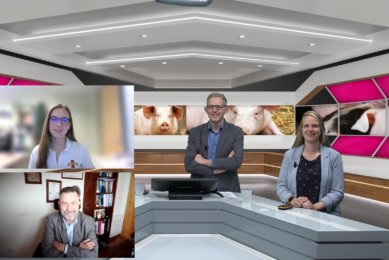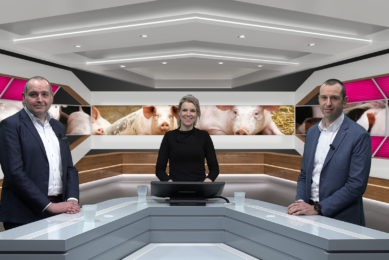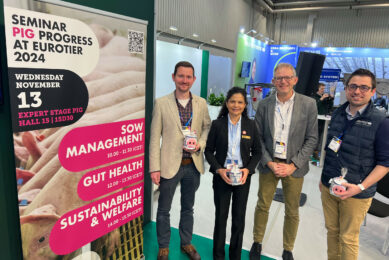On-demand: Webinar on tackling gut bugs in pigs
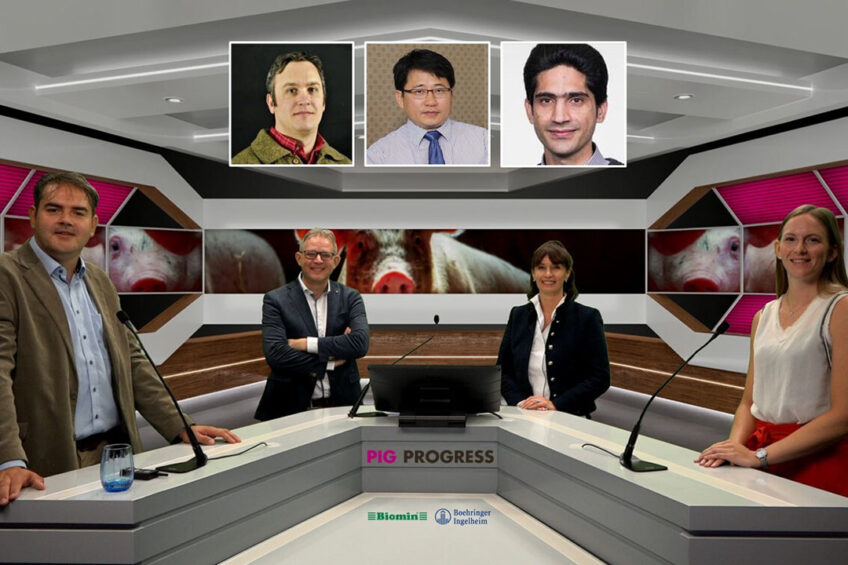
Pig producers work hard to keep gut bugs out of swine farms – Salmonella, Clostridium, E. coli, just to name a few. With a limited use of antibiotics imposed, the toolkit to tackle this variety of unwelcome pathogens is changing. A recent webinar explored new ways of dealing with this challenge. The webinar is now available to watch on-demand for free.
Management strategies to mitigate the heat stress effects
In cooperation with Boehringer Ingelheim and Biomin, Pig Progress editor, Vincent ter Beek, hosts an informative webinar where he speaks to experts from around the world who share their insights from both an animal health and an animal nutrition angle on tackling gut bugs.
This webinar was recorded in the morning and again in the afternoon in the Netherlands on 8 September 2021. The morning session catered specifically for an audience in Asia and Europe, while the afternoon session for an audience in the Americas and Europe.
Intestinal microbiome of pigs
Dr Suphot Watthanaphansak, instructor and deputy director of the Large Animal Hospital, Faculty of Veterinary Science, Chulalongkorn University in Thailand, was the opening speaker of the morning webinar. He discusses the interaction of Lawsonia intracellularis with the intestinal microbiome and looks into the gut of infected pigs. He also considers the effects of probiotics on gut microbiota, and touches on oral vaccination.
Not all swine diseases are infectious
The afternoon session kicked off with a presentation by Professor Nicholas Gabler, animal science professor at Iowa State University in the US. He opened by noting that while disease is a constant threat, not all diseases are infectious. Pathogens, he said, are endemic in pig production and pig producers therefore require different tools to combat these endemic pathogens. Not all pathogens or all diseases are going to have the same impact on the host, and several factors play a role. He shares in-depth results from an 18-month study that set out to determine how L. intracellularis challenge can impact a pig’s physiology, intestinal function integrity and digestibility.
“It is important to realise that with reducing antibiotics it is still possible to improve animal performance”
Oral vaccination against Lawsonia intracellularis in pigs
The following speakers can be viewed in either webinar.
Rutger Jansen, global technical manager at Boehringer Ingelheim, shared a presentation on the effect of oral vaccination against L. intracellularis on a microbiome. He shows that over the past 10 years, the Netherlands has drastically reduced the use of antibiotics (by about 70% across all species). This, he says, has been achieved through more preventative vaccines over antibiotics and supported by other measures, including improved hygiene and feed quality. “It is important to realise that with reducing antibiotics it is still possible to improve animal performance as well,” he notes.
The importance of tackling antimicrobial resistance in swine and all livestock
The next speaker was Dr Anouschka Middelkoop, researcher of swine nutrition at Schothorst Feed Research, who spoke about intestinal challenges in general and focused on the importance of tackling antimicrobial resistance. “Gastrointestinal problems rank amongst the highest caused of morbidity and mortality in pig production, and therefore also antimicrobial usage. So, 80% of all health problems are covered by GI tract problems.” She takes a closer look at E. coli and Salmonella.
The role of phytogenics and organic acids in pig production
Next up was Dr Nataliya Roth, global product line manager at Biomin and expert on antimicrobial resistance. She agreed with Dr Middelkoop on the various factors that influence gut microbiota relating to the host but focussed her presentation on the role of phytogenics and organic acids in animal production and as antimicrobials and their efficacy on microbiota modulation.
DNA sequencing to bring the lab to the swine farm
Scientist at DSM Biomin in Austria, Dr Mahdi Ghanbari, was the final speaker of the day and explains how in recent years, DNA sequencing methods have become faster and more affordable while sequencing devices have become smaller and portable. He speaks about how novel sequencing technologies can be leveraged and how we can “bring the lab to the farm”. These methods give insights, quickly, into the microbiome of an animal’s gastro-intestinal tract.
What the global audience wanted to know
Following the presentations, the speakers were all asked a range of questions posed by members of the global audience during the webinar. Some of the questions included:
– What sampling protocol makes for effective on-site sequencing?
– Have microbiome studies been done in pigs using DNA sequencing technologies?
– Does E. coli have a specific pattern in different parts of the world?
– Is Lawsonia prevalent worldwide?
– Would an intermuscular vaccine for ileitis have the same effect as an oral vaccine?
– What are the most effective phytogenics to modulate the pig gut microbiome?
– What is the antibiotic reduction situation in Southeast Asia?
– Has the attitude toward antibiotic reduction in North America changed over recent years?
– Should antibiotics be used in creep feed?



